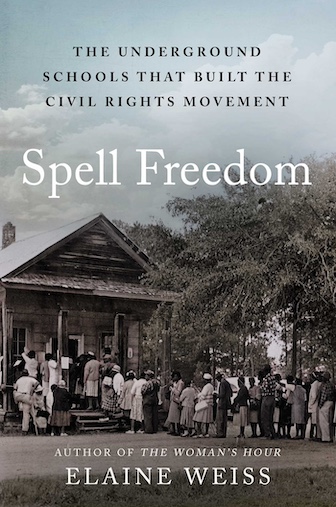The Seething Pot
In a new thriller, Lyndsay Faye examines crime and corruption in 1840s New York
In The Fatal Flame, Lyndsay Faye continues her popular Edgar-nominated series with a thriller in which Timothy Wilde is forced to confront his intense fear of fire—a perfectly rational fear for anyone living in 1840s New York—to pursue an arsonist.
 Wilde has a special reason to keep his distance from flames. One fire killed his parents, and another left him with a disfiguring scar. So when he must investigate arson threats against factory owner and corrupt politician Robert Symmes, Wilde is not especially thrilled. He also feels a bond with Sally Woods, the woman Symmes has accused of making the threats, and suspects there is much more to the story than either is telling. But when one of Symmes’s buildings burns to the ground, Wilde realizes he has to put personal feelings aside and find this arsonist.
Wilde has a special reason to keep his distance from flames. One fire killed his parents, and another left him with a disfiguring scar. So when he must investigate arson threats against factory owner and corrupt politician Robert Symmes, Wilde is not especially thrilled. He also feels a bond with Sally Woods, the woman Symmes has accused of making the threats, and suspects there is much more to the story than either is telling. But when one of Symmes’s buildings burns to the ground, Wilde realizes he has to put personal feelings aside and find this arsonist.
Of course, fire is not the only thing to be afraid of in New York, especially if you’re poor. Immigrant women are met at the boat and promised jobs only to find themselves forced into prostitution. The same is true for children. Hunger is a constant reality. As a member of the fledgling New York City police force, Wilde tries to make a dent in the evil he sees around him while maintaining some semblance of moral distance from the powerful Tammany Hall politicians who control everything and can end careers—and lives—at will.
“The year 1848 was not, by any standard, a comfortable one,” Faye writes. Slavery threatens to tear the country apart, and factory workers—including Sally Woods—are demanding better working conditions. The nation is in an uproar: “The country was tearing itself apart at the seams, our rancor poker-black and spiteful. Meanwhile, here in my arrogant young port town, folks were clawing for supremacy like distempered street cats. Nearly half a million of us.”
 Faye has written a gripping historical novel with an immediacy that allows the reader to feel the dirty, dangerous streets that Wilde and his colleagues patrol. “One of the girls was crowned with blood-crusted gouges along her dark hairline,” Wilde remembers. “When I realized that was because she’d fallen asleep with her head uncovered, and she’d been too weary to awaken when a rat started gnawing her mazzard off, I thought we’d do best to build an ark, flood this cesspool of a city, and start it over fresh.”
Faye has written a gripping historical novel with an immediacy that allows the reader to feel the dirty, dangerous streets that Wilde and his colleagues patrol. “One of the girls was crowned with blood-crusted gouges along her dark hairline,” Wilde remembers. “When I realized that was because she’d fallen asleep with her head uncovered, and she’d been too weary to awaken when a rat started gnawing her mazzard off, I thought we’d do best to build an ark, flood this cesspool of a city, and start it over fresh.”
The Fatal Flame features a large cast of memorable characters. Wilde’s brother, Valentine, “sleeps with gorgeous free black women, beautiful immigrant molls with lusty appetites, high-spirited Bowery girls, and an aristocratic male English pianist by the name of James Playfair, with whom he practically lives, though they maintain separate residences and double sets of keys,” Faye writes. “It’s no wonder the man is infamous. His trousers are as often open as shut.” Besides his sexual proclivities, Valentine also has a taste for morphine. Perhaps most dangerously, he decides to challenge Symmes in the coming election.
Then there is Silkie Marsh, a madam, who may have a heart, but it’s certainly not of gold: “Child whores were a lucrative business for her. Both alive and dead,” Faye writes. “Silkie Marsh has her hands in up to her shoulders where graft, cronyism, and Party politics are concerned.”
This is Faye’s third Timothy Wilde book, and while it’s true that the first two books in the series should be read, that’s not because it’s impossible to follow the plot of The Fatal Flame otherwise. It’s because readers should spend as much time as possible in Timothy Wilde’s company.

Faye Jones, dean of learning resources at Nashville State Community College, writes the Jolly Librarian blog for the college’s Mayfield Library. She earned her doctorate in nineteenth-century literature at Indiana University of Pennsylvania.


